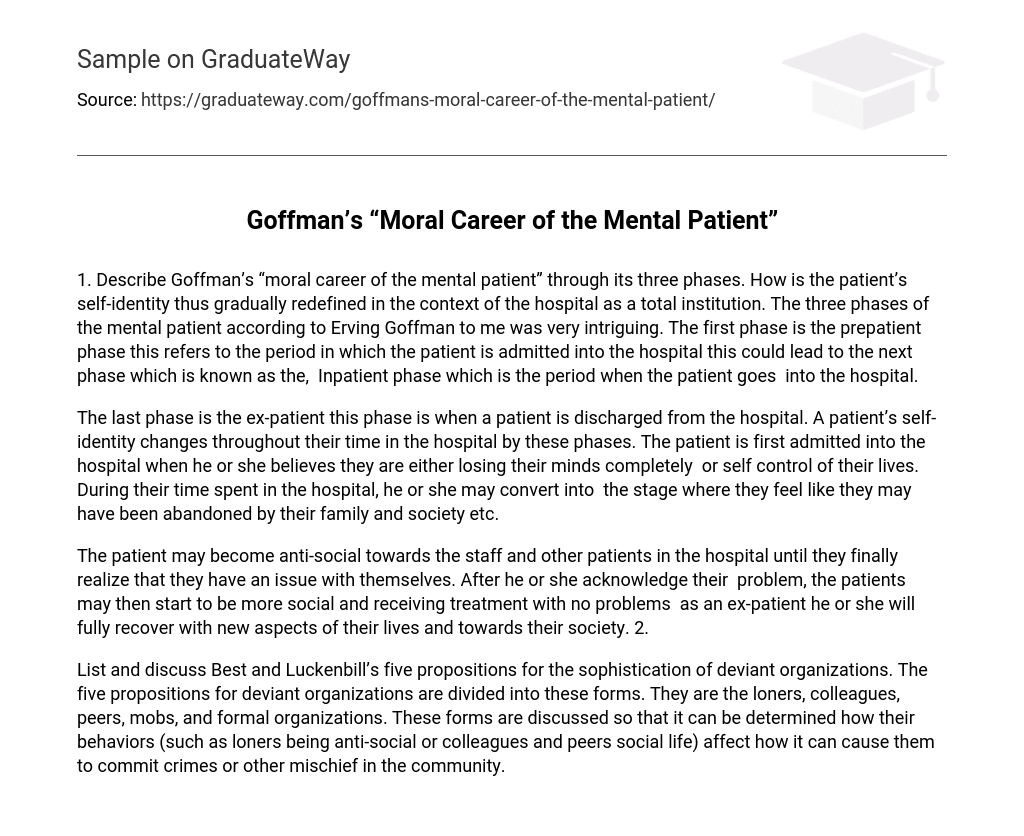Describe Goffman’s “moral career of the mental patient” through its three phases. How is the patient’s self-identity thus gradually redefined in the context of the hospital as a total institution.
The three phases of the mental patient according to Erving Goffman to me was very intriguing. The first phase is the prepatient phase this refers to the period in which the patient is admitted into the hospital this could lead to the next phase which is known as the, Inpatient phase which is the period when the patient goes into the hospital.
The last phase is the ex-patient this phase is when a patient is discharged from the hospital. A patient’s self-identity changes throughout their time in the hospital by these phases. The patient is first admitted into the hospital when he or she believes they are either losing their minds completely or self control of their lives. During their time spent in the hospital, he or she may convert into the stage where they feel like they may have been abandoned by their family and society etc.
The patient may become anti-social towards the staff and other patients in the hospital until they finally realize that they have an issue with themselves. After he or she acknowledge their problem, the patients may then start to be more social and receiving treatment with no problems as an ex-patient he or she will fully recover with new aspects of their lives and towards their society.
List and discuss Best and Luckenbill’s five propositions for the sophistication of deviant organizations.
The five propositions for deviant organizations are divided into these forms. They are the loners, colleagues, peers, mobs, and formal organizations. These forms are discussed so that it can be determined how their behaviors (such as loners being anti-social or colleagues and peers social life) affect how it can cause them to commit crimes or other mischief in the community.





